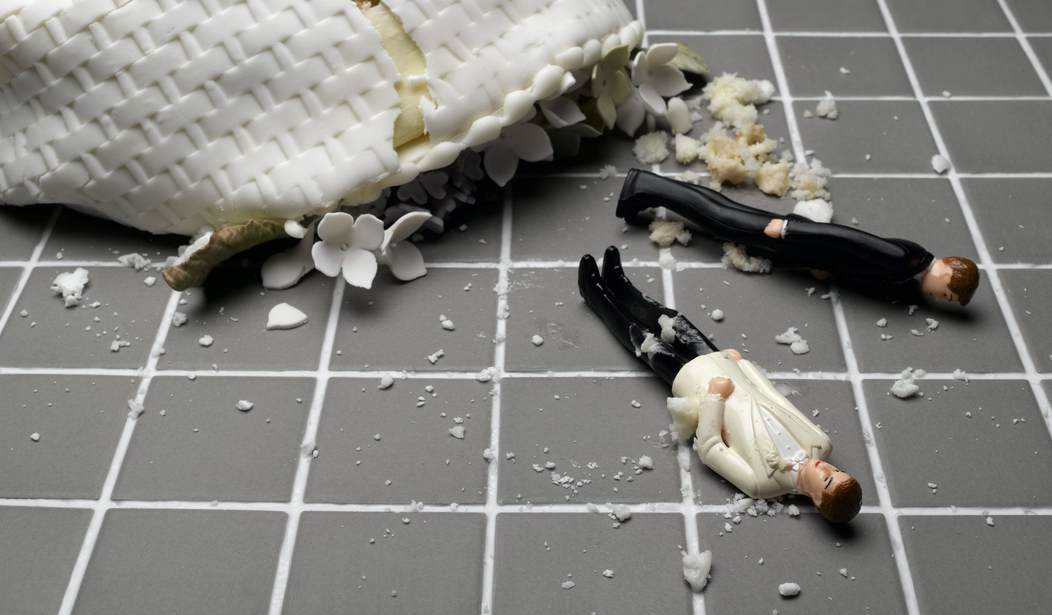On Monday, a California superior court judge upheld a baker’s free speech to refuse to bake a cake for a same-sex wedding in a case that echoes a similar matter before the U.S. Supreme Court. The judge argued that the case is not about discrimination against same-sex couples but about free speech.
Kern County Superior Court Judge David Lampe ruled against the state of California’s request to force Cathy Miller, owner of Tapestries Bakery in Bakersfield, to create a same-sex wedding cake or to stop making wedding cakes at all.
“The State is not petitioning the court to order defendants to sell a cake,” Lampe wrote. “The State asks this court to compel Miller to use her talents to design and create a cake she has not yet conceived with the knowledge that her work will be displayed in celebration of a marital union her religion forbids. For this court to force such compliance would do violence to the essentials of Free Speech guaranteed under the First Amendment.”
Last August, Eileen Del Rio and Mireya Rodriguez requested Miller bake them a cake for their same-sex wedding. Eileen Rodriguez-Del Rio (who changed her name after the wedding) claims Miller denied her request, saying, “I don’t condone same-sex marriages and will have no part in the process.”
Rodriguez-Del Rio filed a complaint with the state’s Department of Fair Employment and Housing (DFEH), claiming Miller had violated California’s anti-discrimination laws. The DFEH filed a motion to order Miller to endorse same-sex weddings by making celebratory cakes, or to cease creating any wedding cake.
“Everyone is God’s creation and I love everyone,” Miller told KERO-TV Bakersfield, “but there are certain things that violate my conscience, and my conscience will not allow me to participate in things that I feel are wrong. Most of what that’s based on is scripture.”
Miller said she does not believe same-sex marriage is true marriage according to the Bible, and therefore would not create same-sex wedding cakes, as doing so would imply support for same-sex marriage.
The Freedom of Conscience Defense Fund (FCDF) represented Miller pro bono in the case. Charles LiMandri, FCDF’s president and chief counsel, explained why the baker’s refusal to craft a same-sex wedding cake was not discrimination.
“Cathy gladly serves everyone who walks through her bakery’s doors, including same-sex couples,” LiMandri explained. “But she should not be forced by the government to express messages that conflict with her sincerely held religious beliefs. We are pleased the judge recognized that the First Amendment protects Cathy’s freedom of speech.”
Miller’s case echoes that of Jack Phillips, owner of the Colorado bakery Masterpiece Cakeshop. In 2012, a gay couple asked him to bake a wedding cake for their same-sex wedding, and he refused. On the same day, he offered to bake any other kind of cake for them.
The Colorado Civil Rights Commission ruled that Phillips had discriminated on the basis of sexual orientation, but Phillips and the Alliance Defending Freedom (ADF) appealed the case all the way to the Supreme Court.
Tragically, the very same Colorado Civil Rights Commission sided with another baker who refused to create a cake based on the cake’s message. William Jack asked Azucar Bakery in Denver to bake two Bible-shaped cakes with the messages: “God hates sin. Psalm 45:7,” “Homosexuality is a detestable sin. Leviticus 18:22,” “God loves sinners,” and “While we were yet sinners Christ died for us. Romans 5:8.”
Marjorie Silva, the bakery’s owner, said she refused to make the cakes because the messages were “hateful and offensive,” but Jack claimed she had discriminated against him on the basis of his creed. The commission defended Silva, as did ADF.
The Civil Rights Commission argued that Phillips’ case is different because he refused to bake a cake for two homosexual men, but Phillips testified that he gladly served the same-sex couple. Like Silva, however, he objected to baking a cake because of the message, not because of the people asking for it.
Judge David Lampe’s decision for Miller shows that bakers like Phillips can win their free speech argument. Some judges do acknowledge that baking a cake for a same-sex wedding is a form of artistic speech defended by the First Amendment. That means government forcing a small business owner to serve a same-sex wedding constitutes compelled speech, something that violates the Constitution itself.
Discrimination is still illegal, and LGBT people have unjustly suffered in the past, but that does not give them the right to force people to celebrate their unions. Under the 2015 Obergefell v. Hodges decision, same-sex couples like Eileen Del Rio and Mireya Rodriguez have the right to get married, but that does not mean they have the right to force artists like Miller to endorse that union.









Join the conversation as a VIP Member